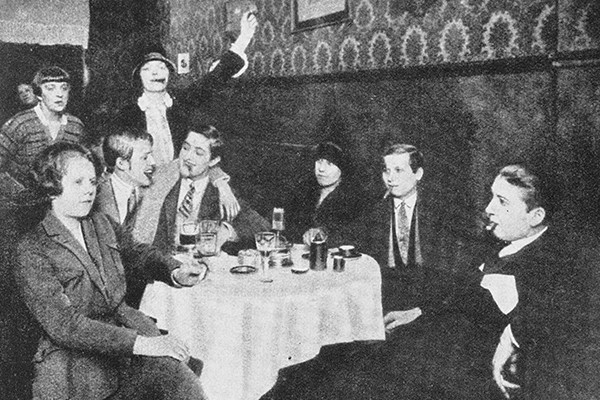
A rare photo showing the interior of a lesbian bar in Germany. US Holocaust Memorial Museum, courtesy of Magnus-Hirschfeld Gesellschaft
Although male homosexuality was illegal in Germany, the fragile Weimar Republic of the 1920s and early 1930s afforded a more tolerant atmosphere for gay and lesbian lifestyles. Shortly after taking power, the Nazis began shutting down gay bars and radically expanding Paragraph 175, the law that punished male homosexuality. By 1936, the police would have a special Office for Combating Abortion and Homosexuality tasked with arresting and punishing homosexuals. This talk will examine the early phase of Nazi policy towards queer people: What did the first steps towards the persecution of gay men during the Holocaust look like, and what effect did it have on the lives of gay men and women?
Featured Speaker
Lauren Stokes, Assistant Professor, Department of History, Northwestern University
Lauren Stokes (Ph.D., University of Chicago, 2016) is a historian of modern Germany, with a particular focus on migration and race in German history. She is currently at work on a book about “family reunification” for foreign workers in West Germany, exploring the ways that regulation of the intimate sphere was linked to broader processes of labor migration, national identity formation, and European integration. She currently conducts research in German, Spanish, Italian, and Turkish.
Event Chair
Alex Entratter
Jamie Greenebaum
Michael Zuckerman
The ticket price is $20 in advance, $25 at the door, and includes two cocktails.
The registration deadline is October 26.
